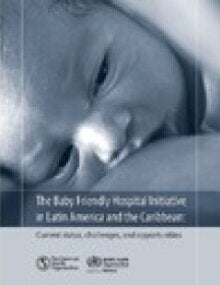The Baby Friendly Hospital Initiative (BFHI) was launched in 1991 by the World Health Organization (WHO) and the United Nations Children’s Fund (UNICEF), with the goal of protecting, promoting and supporting breastfeeding in facilities that provide maternity services.
Breastfeeding is associated with short- and long-term health benefits for both mother and child. For the mother, this includes prevention of breast and ovarian cancers, and some cardiovascular diseases. For children, the benefits include reduced morbidity and mortality, particularly in the neonatal period, and increased IQ. The BFHI has been shown to increase rates of exclusive breastfeeding, to reduce the incidence of gastrointestinal disease and atopic eczema during the first year of life, and to improve children’s IQ and academic performance. Yet despite its proven benefits and relevance to current global health goals, the BFHI has suffered from waning political and financial support in recent years.
Meanwhile, recertification processes are not in place in most countries to ensure that BFHI standards are maintained at facilities that may have been certified long ago. The Latin American and Caribbean (LAC) region has the highest percentage of births occurring in health facilities globally (89%), yet only about a third of infants are exclusively breastfed. Child health and development and maternal health outcomes in the region could benefit substantially from a reinvigoration of the BFHI. In 2013-2014, the Pan American Health Organization (PAHO) conducted a survey to assess the status of the initiative in PAHO’s LAC Member States. This report presents results from the survey and identifies specific challenges and opportunities for BFHI implementation in the LAC Region...
|

